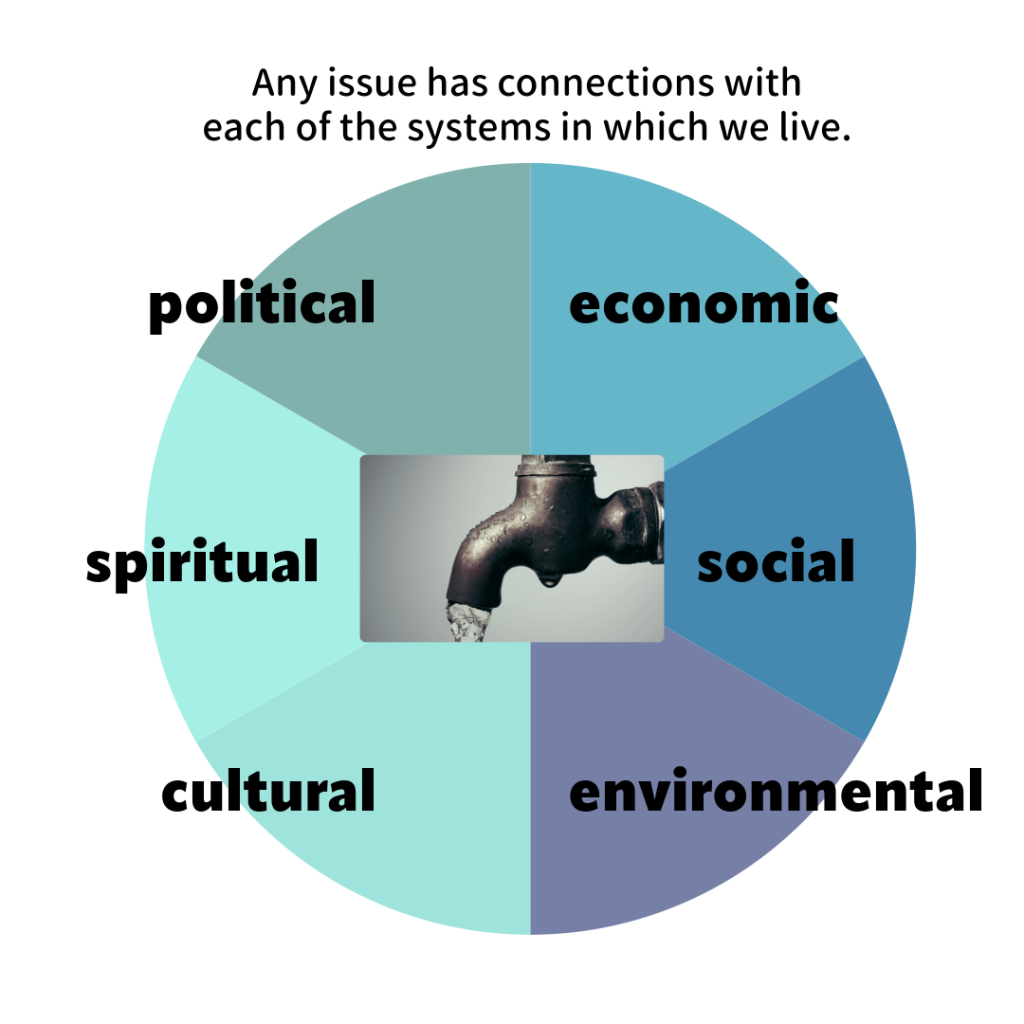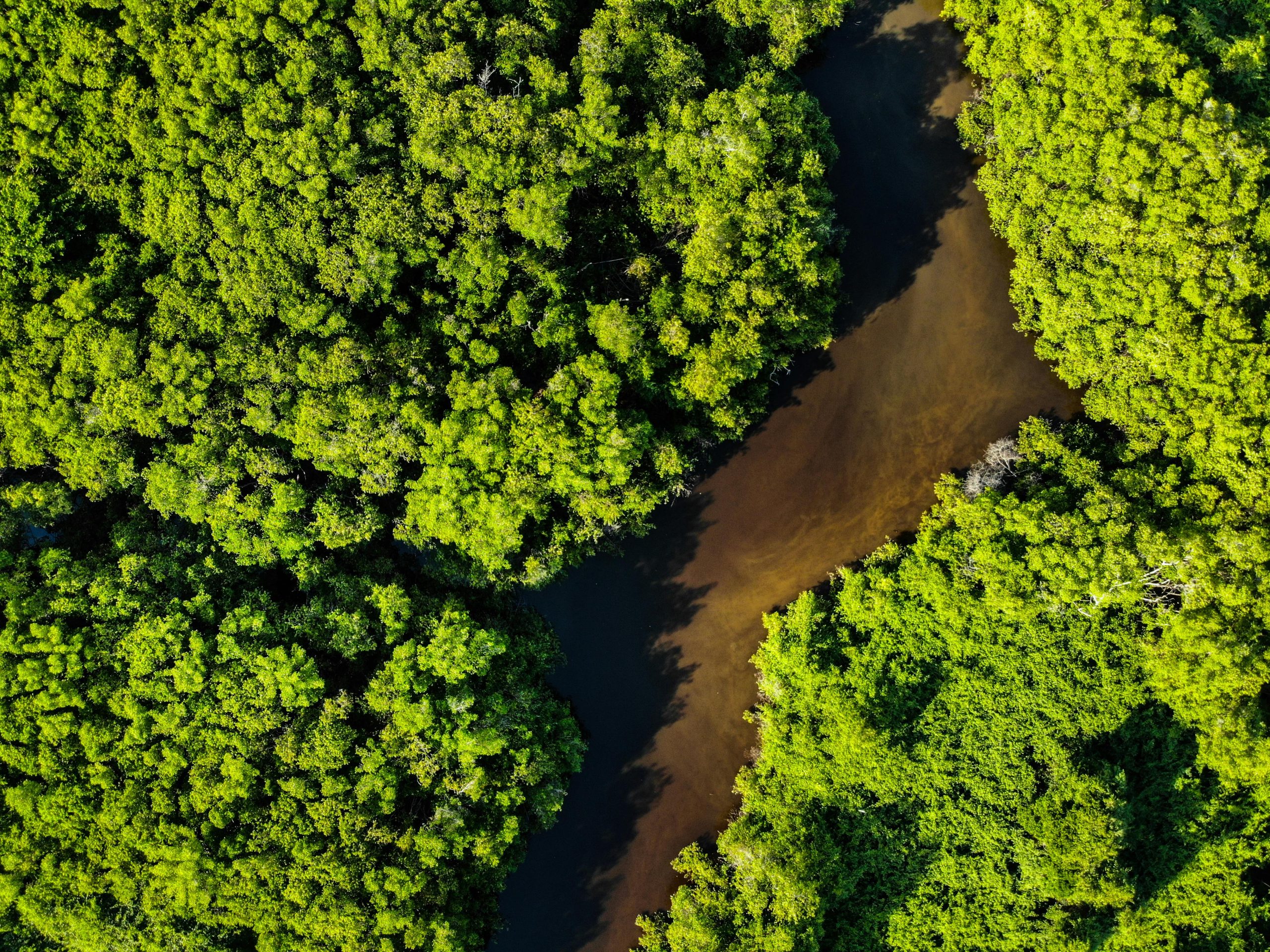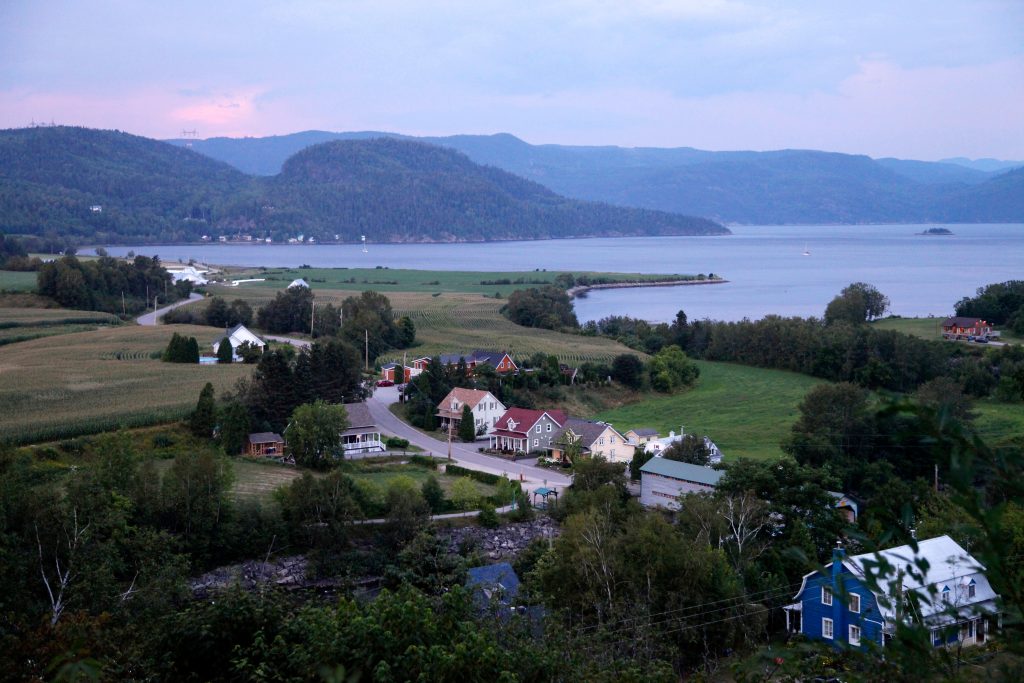What is the lens of integral ecology?
The lens of integral ecology is a wide lens – looking at the big picture. It urges us to pursue social, cultural, political, economic, spiritual and environmental objectives together, rather than separately, so we might move toward wholeness.
Simply put, when we are looking for a solution to an environmental or social problem, the strategies we use must have integrated approach. This means when we seek to combat poverty, we also want to be restoring dignity to the excluded, and at the same time protecting nature.
Let’s use the issue of water as an example…
A lens of integral ecology will reveals a complex web of issues which need to be addressed. Here is a list highlighting some critical water issues found in the news recently (this is not exhaustive):
- Oceans: plastics affecting marine life; oil spills; effects of climate change
- Lakes, rivers, streams, groundwater: invasive species; climate change affecting water levels; pollution
- Water privatization and industrial use
- Oil spills, tailings from mining operations
- Dams and the destruction of ecosystems/First Nations territories
- Drinking Water Advisories on many First Nations reserves

Complexity doesn’t mean it’s too hard for us to know what to do. It means there are many things to be done – something for each of us – and we need to make sure we’re getting at the root causes of problems when we act.
Most of these issues are primarily environmental but root causes are often economic (ex. industries more focused on profit than care of the environment), political (ex. insufficient regulations to govern industries and use of consumer products) and social (ex. insufficient attention to how development is degrading ecosystems). And underlying all these issues are the cultural and spiritual attitudes and assumptions that allow these
practices to exist (ex. humans are separate from nature, water is merely a resource for human use).
The lens of integral ecology highlights interconnections, revealing the complexity and multifaceted character of water issues. We can identify root causes by exploring how the major systems, which shape our interactions on earth, are impacting water. That is, how are environmental, social, political, economic, cultural and spiritual systems impacting water?

Focusing on a particular issue — while seeing interconnections
More than any other group in Canada, First Nations’ communities live at the nexus of water concerns. If we pick just one of these concerns, the issue of drinking water advisories on many First Nations reserves, we can look more closely at how the quality of drinking water is impacted by each of the major systems in which we live.
- Environmental elements – Ecosystem degradation
- Political elements – Not Protected by Laws and Regulations
- Social elements – Communication hurdles
- Economic elements – Need for Adequate Funding
- Cultural elements – Overcoming Prejudice
- Spiritual – A Spiritual Relationship with Water

Creating systemic change: an integral ecology approach is aware of the web of interconnection and then goes deep to work for change on four different levels.
Four different levels of structure in systems
- Changing Policies Examples: Full funding for water infrastructure, management and operations on First Nations reserves. Stronger regulations to protect waterways.
- Changing Fundamental Social Institutions (family, religion, education, economy/work, government) Examples: The Truth and Reconciliation process is intended to impact Canadian society at the level of these fundamental institutions, but this will happen only if the process is engaged wholeheartedly.
Likewise, a process of Reconciliation in the Watershed has the potential to impact us at the level of our most basic institutions – creating ripples of change throughout our society. - Changing Narratives Example: In Laudato Si,’ Pope Francis emphasizes the importance of understanding the Creation stories anew. He emphasizes that we are part of nature and our role is to care for the members of earth community. This re-telling of stories is at the heart of evolving consciousness, whether we’re talking about faith stories, cultural stories or popular stories.
- Changing Worldviews Examples: By becoming more aware of the attitudes and assumptions which shape our relationships with land, water and people, we can reflect critically on the impact and adequacy of these views. Would anything change for you if you began to see water as a Creation-relative?

This work for change can happen through prayer, art, conversations, education, political advocacy, caring for the local watershed and much more.
For an expanded version please read: Looking at Water Through the Lens of Integral Ecology, by Sue Wilson, csj, Office of Systemic Justice, Federation of Sisters of St Joseph of Canada.
